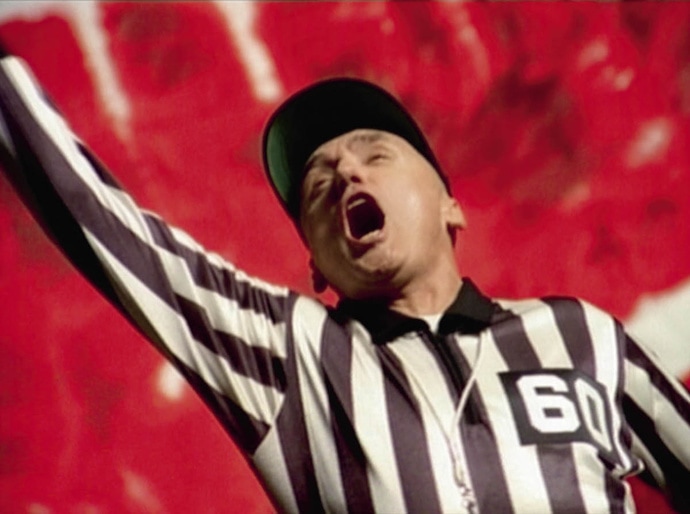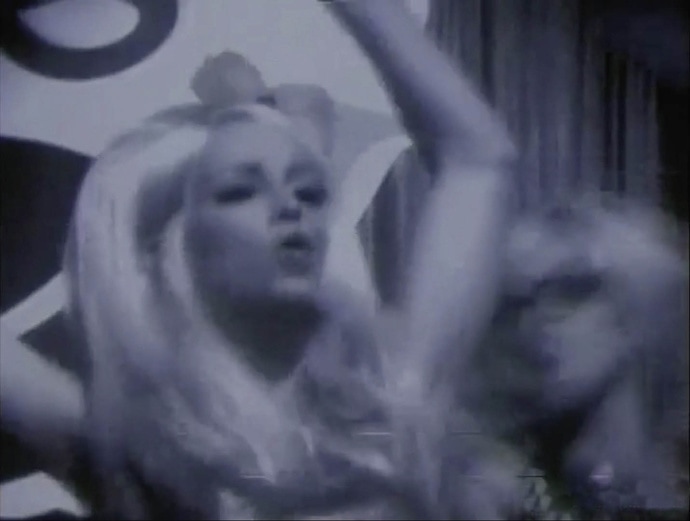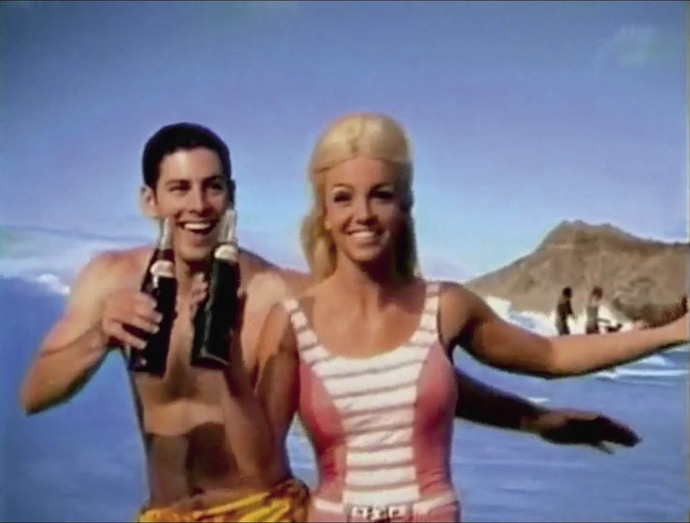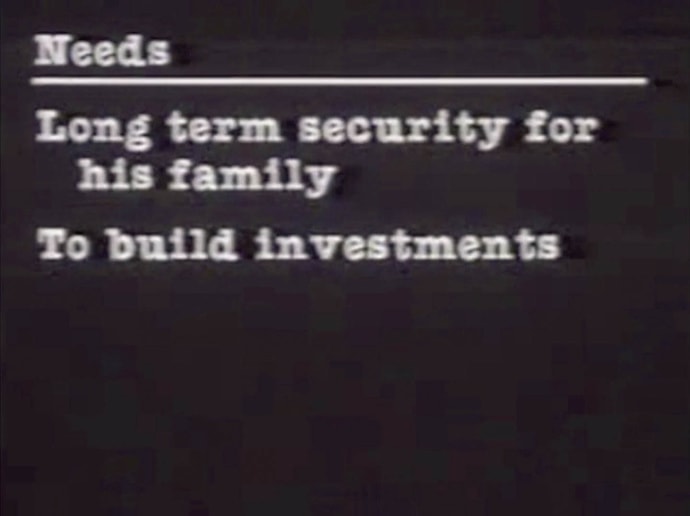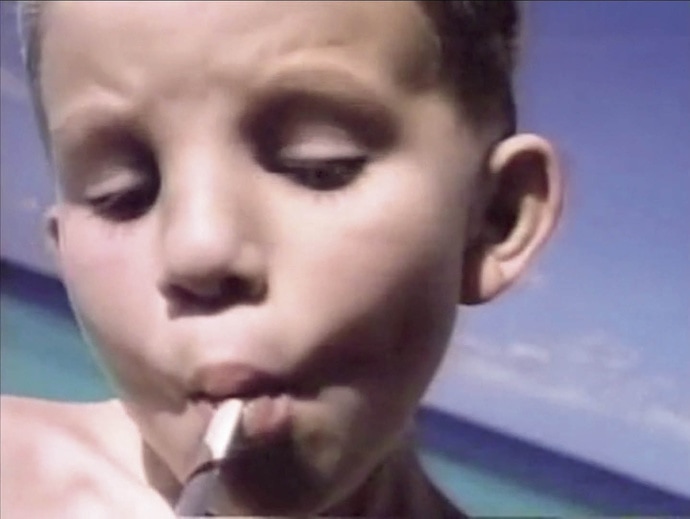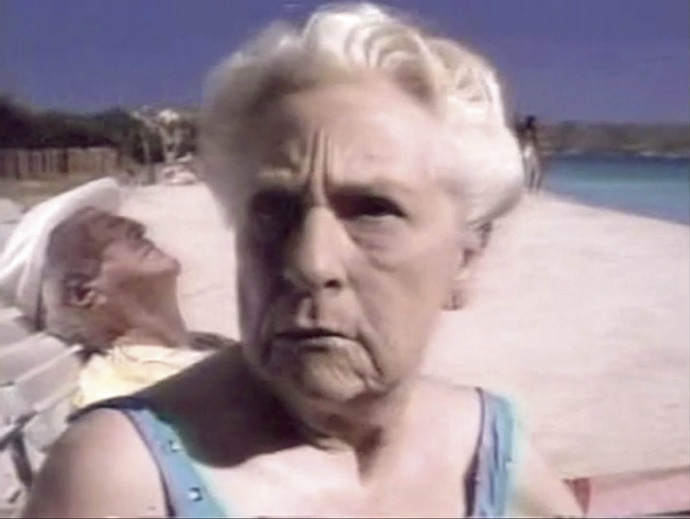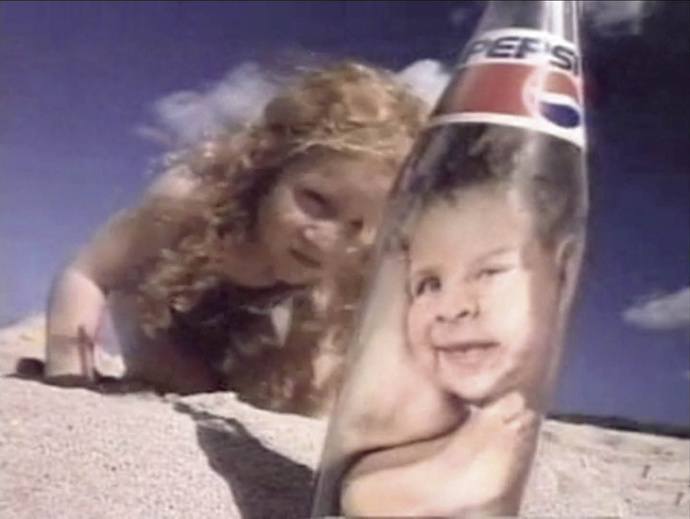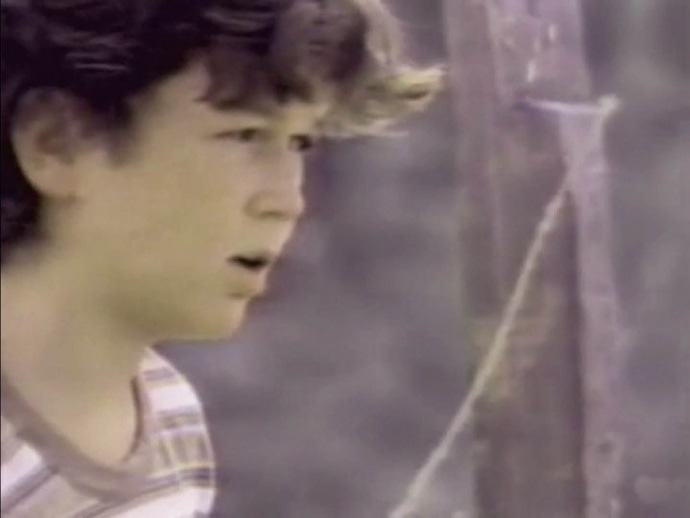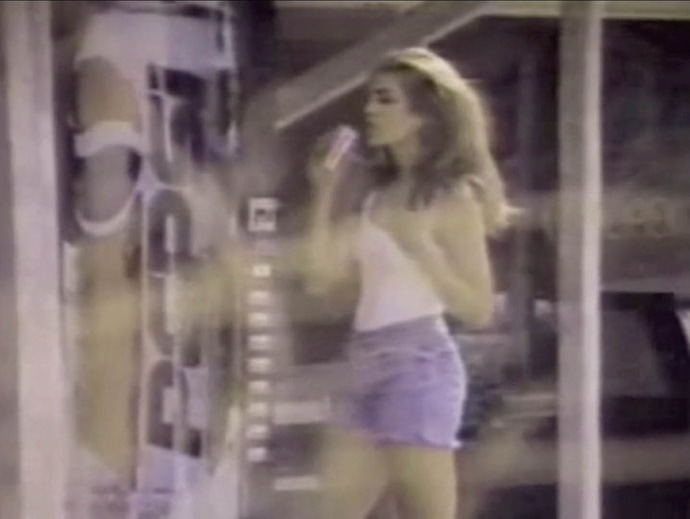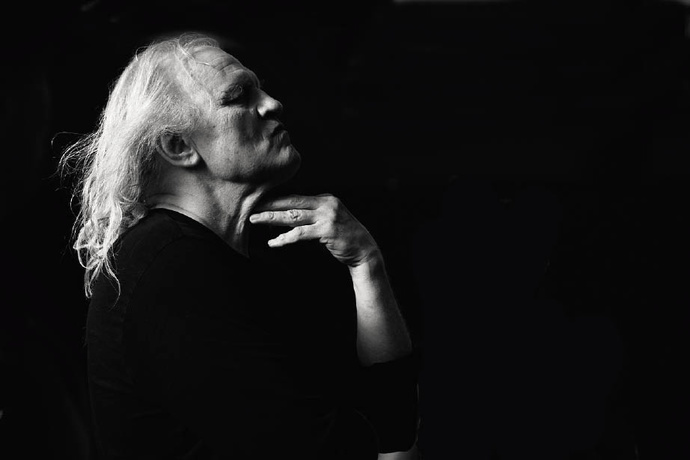
10th February 2016
Joe Pytka
For 40 years, Joe Pytka was King of Cannes. He won more awards than any other commercials director on the planet. His work for Hancock, Pepsi, and Nike won Golden Lions and Grands Prix. No less unforgettable: Pytka’s commercials for Nike with Dennis Hopper. Hermann Vaske spoke to the legendary Joe Pytka in Los Angeles.
Advertising now is like scraping the bottom of the ocean.
This… year, we are celebrating Dennis’s 80th birthday. What was it like working with Dennis on your famous Nike commercials?
Stacy Wall wrote those Nike commercials with this strange character – a kind of homeless referee – and we’d shoot some commercials. That was it.
What you did there is, I would say, one of the most extraordinary uses of celebrities for a product.
Stacy was a genius writer. When Nike was breaking ground, they still were the #1 brand and they did everything they could to do special commercials. And Stacy created this character, a homeless referee in referee uniform, very controversial. I was surprised that Dennis wanted to do the spots. Later, I discovered – I think – that Stacy wanted to turn this idea into a television series. And that’s why they did the commercials with the two rounds. They had David Fincher for the first batch. I don’t know why he didn’t do the rest. Stacy came to me after the work with Fincher. They called me. Originally, I wasn’t available.
You did the Super Bowl commercial “The Speech”, right?
Yeah, the spoof of the famous Patton speech. They screwed it up putting the football stuff in. They should have left the football stuff out. The football stuff cheapened it. But someone from Nike said we have to put the football stuff in there so that we all know what it is about.
Can you elaborate about Dennis Hopper as an actor?
There is a duality to Dennis’s performance ability. On the one hand he became a creative force trying to change why actors acted, and on the other hand he was particularly trained because he’d done all these movies with fabulous directors. Remember he did “Rebel Without A Cause” with Nicholas Ray, and “Giant,” both of them movies starring James Dean, the latter directed by George Stevens.
Dennis had the discipline of an actor but also had these fabulous improvisation skills. But he knew that if he didn’t do something in the frame it will disappear forever. He had a real focus and, no matter what he did, he still had this Hollywood discipline. I was shooting that speech with several cameras. And I think we had several teleprompters just in case. But he never left the frame… a 600 mm lens shot. He never left the frame. He knew what that lens saw… no matter what he did, he focused on the frame.
Great awareness of the camera.
Remember, he is a great director. He directed many films, he acted in many films, worked with great people. He had this fabulous discipline. He was a photographer, a painter… umm, everything. He was a constantly creative person. So Stacy came to me and said: “What do you think?” I said, “I see the problem here. Dennis wants to do it like this and you like that.” So I turned to Dennis and said, “Dennis, you worked with George Stevens, Nicholas Ray, Henry Hathaway, Francis Coppola, Howard Donald… ” and Stacy just shut up and walked away. Because Dennis worked with these fabulous directors – he knows the great directors of all time – and Stacy was a young writer. Brilliant!
But this arguing with Dennis Hopper, who had all this experience… I trusted him all the way. I think we did about eight or 10 commercials. I don’t think we ever had a discussion about the performance. Whatever he came up with was brilliant.
He said to me that when he first met you he had the impression that you are a big, loud, or rugged kind of guy, or whatever he said. and he thought he’d never get along with you – and at the end of the shoot he said he loved you.
Wow. That’s mutual. The first day, it almost went down the toilet. He requested a teleprompter. And I had a casual conversation with my producers about it. Because we were shooting on the Aaton camera, a tiny camera, and there is no way to use a teleprompter because, at that time, they didn’t make a teleprompter that small. What I should have done is to bring the teleprompter anyway – just to have it. The first commercial – we shot two commercials that day – was him on a football field with the other players and it was improvisation so we didn’t need teleprompters. It’s one line here, one line there. The second commercial was him singing the song. This is my favorite. And he asked for the teleprompter and I said we don’t have a teleprompter. He blew up, saying his agent had specifically asked for a teleprompter and stormed off into his trailer. I thought there it goes. It’s over. So I quickly got some big cards and start writing a cue card, and the assistant director is writing the other half. He came up, he stormed out of the trailer, just threw all that stuff away, and two or three takes… perfect each time. Perfect.
Let’s talk about creativity.
I don’t like the word creativity. Right, I’ll give you that word but I don’t believe in the word “art” and I don’t believe in the word “creativity.” Creativity means building something from nothing, and we can’t do that, We have to have something. Same with art. I don’t know how to define what art is. What is the difference between the label on this water bottle and art… if Andy Warhol took a picture of this and painted it, it would be a piece of art. And it was just the label. Stuff like that. Which was what he did.
What do you think of the state of creativity these days?
The worst ever in history. It’s terrible at every level. Painting, filmmaking, commercials, photography, everything.
Pourquoi?
Why? I have a lot of theories. Access to tools is too easy, we could go on for hours about this… Let’s talk about painting, for example. A classical oil painting, how many levels do you have – 6 or 8, right? They don’t teach it anymore. They don’t teach you how to prime the canvas properly, how to back paint, how the colors emerge, everything. Now you can go to the place on Beverly, buy some paint and you can paint. It dries in 5 minutes. I studied painting and design and drawing for a long time and the hardest thing was oil painting. Very difficult. Waiting for it to dry. So it’s too accessible now. I did a short film promoting an art piece a couple of years ago and I ran into Damien Hirst and I saw one of the paintings with all the circles – have you seen those? And I said, “How did you paint those?” And he said: “I don’t paint. I have a person who does it perfectly.”
What about films?
With the new technology and the ability to make film, the ease of making film compared to what it used to be… there are maybe one or two films a year that are worth watching. In the old days, you had a good film every week. Am I wrong?
Has advertising gone down, too?
The worst ever… I judged two shows, I judged Cannes, I was the head of the Cannes jury two years ago. And the Art Directors Club last year. I have to tell you this right now, the Cannes people hate me for this: I had to struggle to give prizes, I argued with my jurors about the stuff. I said, do you see any value in this? With one particular commercial, I said: “You are not leaving this room until you change your mind about this commercial.” And I had to disparage in some way that planted a seed in them so they saw… they were looking on it just because it was unusual, but it had no essence.
I was blessed to meet great creative people in advertising in what we call “the day.” I used to be a documentary filmmaker and when I started to do commercials to pay the bills I wanted to bring documentary form in truth into commercials. It took me about ten years to meet up with Hal Riney, who shared a similar idea, unique at that time. And then I met four or five other people… Phil Dusenberry, Bill Heater, people like that, and they shared this thing and we were able to function with… the Nike people at that time. And we were able to imbue things with humor and human elements… the Dennis Hopper commercial with him playing the guitar… come on, can you do that today? Have you seen anything like that today?
No, no. Unique.
Unique. Because of Dennis, because of the writer, not me… I just shot the thing. They were able to do this thing. Write that song. They were taking advantage of a certain thing that was happening. But what has happened is that we have become corrupted by business. Ironically, commercials have to do with business. But business is now taking over and they are dictating the terms. Right?
I got into trouble in Cannes a couple of years ago when they asked me about this and I said it’s like advertising is scraping the bottom of the ocean – for the last bit of whatever is there. To get it up here. I have always thought that what we did was an entrepreneurial business. And, now, production companies and agencies are conglomerates, production companies have 50 or 60 directors. You don’t like this guy, use this guy. We guarantee the job to be done. For 57 cents. It used to be $ 4. Now it’s 57 cents.
Here is the worst part, and you have to forgive me for this: I don’t think you are taught anything in school. I think that what you learn in school is copying technique. And you never get a clear vision. I never went to film school. The things I learned came out of process. And one of the things is the thing that we were talking about: Hopper, Dennis Hopper, and the “Easy Rider” thing. “Easy Rider” was a threat to the film industry… he did things… I mean, they rolled with a bunch of cameras and improvised everything. A studio would never let you do that. Right? They want every day. “What time do you start? What time is your first shot? What time is that over?” Like a factory.
I did two movies, two horrible experiences. The studio invents questions for you to embarrass yourself with. I did one movie and they said: “What time did you get the first shot?” “10 o’clock.” “We need the first shot before that.” So what I did, I went in the morning and improvised something and got the first shot at 8 o’clock. Oh, you can’t call this a real shot, you have to go… It’s a game they play, it’s stupid. But, nowadays, I think the technology is too easy.
If you take Ansel Adams walking around with an 8 by 10 camera in the mountains and an 8 by 10 thing you have on load, he needs to be very careful he takes the right picture. You look at the situation, see what the light does, that doesn’t happen anymore. Just throw your stuff out there. Y
ou don’t see any astonishing or beautiful films anymore. Let’s take a film like “Lawrence of Arabia” – it’s astonishing vision. Now you see films like copies, they are all trying to be Stanley Kubrick, they are trying to be David Lean.
How can advertising get better these days? Is there a way out?
I don’t care anymore, to tell you the truth. I think they should flush it down the toilet like the rest of the bullshit. It’s hopeless.
You were in Cannes last year?
No.
When was the last time you were in Cannes?
Two years ago.
What did you see?
Nothing. I saw you on the Carlton Terrace, that was the highlight of the festival. We had to give prizes to stuff, I gave prizes to things… you have to give a prize, then you give it to this… Who is the great French director?
For commercials?
Did everything. Mostly print… Jean-Paul Goude.
He did the Grace Jones commercials for Citroën.
Right, and the other one for Perrier, the girl with the lion. Got the Grand Prix. Yeah, Jean-Paul Goude. You see commercials like that anymore?
No, not really.
Have you seen the new Chanel commercial with the surfer?
I think they were showing this at the Palm Springs Film Festival where I was invited…
What’s her name? Gisele Bündchen. Wasn’t it Gisele… ? The famous model… Have you ever seen it?
I think so, yeah.
Remember how cool Ridley’s first commercials for Chanel were?
Yeah.
… the swimming pool.
Yeah, excellent.
Beautiful. Simple. The coolest shit. These things must have overblown the director… the Australian director who did it. They put the Chanel logos on the surfboards. Supposed to be a surfer.
Baz Luhrmann?
Baz Luhrmann, yeah. Did you see his last movie?
Some of it. I did a movie on the history of the bra in films. I was interested in how lingerie products are used in feature films.
Tom Cruise’s movies – this is product placement central. BMW and all that stuff, airplanes, all that… Have you seen that movie? “Mission Impossible”… In the old days, if you didn’t like your client, you fired the client because you didn’t feel like you could do good work. Hal Riney fired Gallo – it was the only big business he had. Everything else was little business. He couldn’t stand working with Ernest Gallo anymore. He quit. That’s it. He got some big business after that but not at that point. That kind of thing can’t happen today.
If it is a lousy client, you know, you could say to him you are not worth my time.
It’s what Ed McCabe said to Frank Perdue. You can say I don’t feel like working with you anymore. You are a pain in the ass.
Yeah, but there are hardly any Ed McCabes around anymore.
None anymore. None of these guys anymore. Have you talked to Ed McCabe?
I had him in Berlin at the Breaking Walls Award.
How was he?
Great.
But see, people don’t want that anymore.
What’s he doing these days?
He is hanging out, he is out here somewhere, down south somewhere. Oceanside or some place like that.
I did a few things with him a year and a half ago, couple of years ago, with some other creative people and they were shocked. They didn’t realize what you could do in the old days. But, now, clients want money without cost. They’ll do anything for money. I mean it’s money, money, money, they don’t care. And agencies are so big, they have all these options for you. The only one holdout is Wieden+Kennedy, I guess.
What projects are you working on?
Now? Crappy stuff. Don’t want to talk about it.
Commercials?
Commercials. Couple of other things too but nothing worth talking about.
Long-format things?
We are developing a couple of shows for… it’s nothing… nothing, to say it discreetly. Because, like everything else, it’s nothing tangible. But we do commercials here and there. And I am helping a friend develop a television series. It may, or may not, happen. And I am working on a couple of other projects. One thing that is great about the new technology is how easy it is to do stuff now. And it hasn’t been taken advantage of as much as it should. The people who do these really low-budget films are not capable of telling a good story, and the people who are capable of telling a good story don’t want to work like that. But there is room for really good drama here and there. Honest drama if you are capable of doing everything. This, of course, is intended as a very ambiguous comment…
Could you elaborate a bit on that Cannes incident?
I was shocked about the commercial they wanted to give a prize to. We finally gave it the prize but for a minor category, not a major category. But it made me… I’d have been able to give it a prize for a different category. Now I’ve loved the Cannes Film Festival for a long time and it’s not their fault that the work is not up to the standard but the Cannes Film Festival has to give prizes in order to keep its integrity. And the prizes are given to best commercials in the category even if they don’t come up to this level… But people are saying this all the time. The thing about Ridley’s 1984 commercial, about Jean-Paul Goude’s fabulous Perrier commercial, it used to be that these things were real special events and deserved to be given great prizes. But I don’t see that anymore. I don’t know what the problem is. I am not pretending to be able to solve the problem because I cannot solve it alone. I don’t write them, I just do them as well as I can when they come to me, and truthfully there are only one or two people out there that understand…
I did a McDonald’s commercial a couple of years ago. A very simple little commercial. I think we shot about four, five hours… nothing, right? But I changed it because I thought that the original idea was all racist. Patronizing. And it wasn’t a product commercial, it was a brand commercial. And I talked to the creative people a year later. McDonald’s thinks that is the best commercial they have ever done. They did it last year. They only ran it two or three times. They run these commercials with hamburgers and French fries and chicken and all that stuff all the time. But they don’t do brand advertising anymore.
You mean image advertising?
Brand, image… to build the brand… you wanna go there ‘cause it’s a nice place… stuff like that. Which is more important than showing the latest generation of a chicken.
I agree but you don’t have a return on the investment that you can measure easily and fast when you do image stuff.
See, it’s this kind of thinking that destroys it all. Let me tell you a funny story. I see the Henry Weinhard’s commercials by Hal Riney. And he also did Budweiser. And I was with the Budweiser people once and they were laughing at Henry’s commercials. I said, why are you laughing? They say they only run them sporadically and the only time they saw the beer is when they run the commercials. I asked why they don’t run the commercials all the time. They said they didn’t know. But they tracked with tracking devices, and they were all worried about competitors, and they said when they run the commercials the product sales grow and when they stop the commercials sales go down. So why not run the commercials all the time? And they were kind of brand advertising. Image building. They never talked about the hops and the beers and stuff like that. You watch beer advertising and that’s bullshit. Car advertising, that’s bullshit. I don’t know anything that’s good.
So what is your advice if things are to get better?
Better? Commercials? I don’t know. I think it’s hopeless. I don’t see any hopeful stuff out there. Classic example: Dan Wieden and Dave Kennedy started their agency in Portland Oregon, a legendary advertising agency. Dave Kennedy wanted to go to Portland Oregon because he worked in Chicago at Leo Burnett on Procter & Gamble. What’s one of the biggest clients right now for Wieden+Kennedy? Procter & Gamble. They went to make a getaway and now they are doing commercials for Procter & Gamble. I am not saying that is the lowest but when Wieden+Kennedy does commercials for Procter & Gamble… the agency that changed the way I looked at advertising for a long time are doing Procter & Gamble? We have no hope whatsoever, right?
That’s a great example.
I hate to say that. They are both good friends of mine but…
You are aware of what is happening in Europe? A friend of mine says the only good commercials… she runs a big company… are the ones in Europe. But Chanel used to be great and now I see this commercial with Bündchen… Bündchen… what’s her name?
Gisele…
Gisele what? Put it up… (Pytka and Vaske watch the Gisele Bündchen Chanel commercial) Stop, stop, stop. She looks really weird. It doesn’t even look like her. She looks like a guy. Anyway. How many more movies do you wanna see? They butchered that song. The original. Not this… the cover. Finish it… Play a bit more. (they continue watching) I can’t stand it anymore – please, please, please, please… Put on Ridley Scott’s Chanel spot, please! (They watch Ridley Scott’s historic Chanel commercial from 1984)
That was better, no?
Yeah, less is more. (They are now watching the Perrier spot by Jean-Paul Goude.)
Now this is a great commercial.
Yeah, almost perfect. He got booed when they gave him the Grand Prix for that. And Roger Hatchuel said to me, ”Joe, talk to him.” And I talked to Jean-Paul because Jean-Paul was furious. He was storming around the stage. I said to him, “Calm down. You have a Grand Prix and you have it forever. The rest of them are going back to their shitty fucking jobs in Paris, Munich, wherever,” and then I said: “You should have heard the booing when I got my first Grand Prix. It was worse than this.” “What did you do?” Goude asked. “I just held the Grand Prix up. And I looked at them like this… and they all shut up.”




